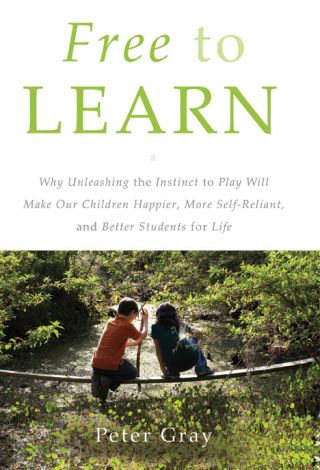Parenting
Helicopter Parenting & College Students’ Increased Neediness
Researchers link helicopter parenting to emotional fragility in young adults.
Posted October 23, 2015

In my last post, I summarized reports from directors of college counseling services concerning college students’ rising levels of depression and anxiety; declining abilities to cope effectively with problems of everyday life; and increasing feelings of entitlement (unreasonable expectations about what other people should do for them). A common theory is that these changes may be at least partly attributable to a rise in "helicopter parenting"—an over-protective, over-controlling, intrusive style of parenting that may prevent young people from learning how to solve their own problems and take responsibility for their own lives.
The theory makes sense, logically, but is there any empirical evidence? A first step in testing the theory is to look for correlations between the style of parenting and students’ emotional and behavioral well-being. Are students whose parents are highly controlling and intrusive more likely than others to manifest the kinds of problems reported by college counselors?
A number of studies have examined this question, and the results of all that I have found indicate that the answer is yes. Here is a sample:
Jill Bradley-Geist and Julie Olson-Buchanan (2014) surveyed 482 undergraduate college students. Each student filled out a questionnaire designed to assess "helicopter parenting" in which they responded, on a 5-point scale ranging from strongly disagree to strongly agree, to each of the following five items:
- I think my parents/guardians are too involved in my life.
- I feel like my parents/guardians sometimes smother me with their attention.
- My parents/guardians have interfered with my life when I wish they wouldn’t.
- I sometimes wish my parents/guardians would “back off” and stay out of my business.
- My parents/guardians are too controlling of me and my life.
Each student also completed a questionnaire designed to assess their level of general self-efficacy—that is, their belief that they are capable of meeting life’s demands and solving their own problems. In addition, they filled out a questionnaire that described various workplace scenarios and asked how they would respond if they were in that situation. In one scenario, for example, they chose how they would likely respond to a negative performance review from an employer.
The results were as predicted: Those students who reported the most helicopter parenting scored lowest on the self-efficacy scale and also gave the least adaptive responses to the workplace scenarios. For example, in response to the critical performance review from an employer, they were less likely than the others to say that they would listen to the criticism and try to improve (which researchers scored as an adaptive response), and they were more likely to say that they would quit the job, explain to the employer why the rating was unfair, or ask a parent to call the manager on their behalf (which researchers scored as maladaptive responses).
In another study, Michelle Givertz and Chris Segrin (2012) surveyed 339 college students and their parents (mostly mothers). The students and parents completed questionnaires having to do with the parents’ style of parenting, and the students also completed questionnaires aimed at assessing self-efficacy and sense of entitlement. The entitlement questionnaire had questions concerning the degree to which the student felt that he or she deserved special favors, beyond those that others received. The results: Those students who had the most controlling and intrusive parents—as assessed by parents' as well as students' reports—manifested the lowest scores on the self-efficacy scale and the highest scores on the entitlement scale. In further studies using a similar design, Segrin and his colleagues (2013, 2015) found that over-intrusive, over-controlling, over-protective parenting correlated significantly with students’ higher levels of narcissism and a reduced ability to cope emotionally with setbacks.
Other, similar questionnaire studies have revealed significant correlations of such over-parenting with college students’ reduced feelings of competency, greater depression, reduced satisfaction with life, greater alienation from peers, greater likelihood of being medicated for anxiety or depression, and greater use of pain medicines for purposes other than reducing pain (LeMoyne & Buchanan, 2011; Shiffrin et al., 2014; van Ingen et al., 2015).
Of course, correlation does not by itself prove cause-and-effect. It is quite possible, maybe even probable, that the causation is at least partly in the reverse direction—poor coping on the part of the child may cause parents to become highly protective and controlling. My guess is that the causation goes in both directions, creating something of a vicious cycle: Over-parenting results in poor coping, which results in more over-parenting, which results in continued poor coping.
Logically, it makes sense that children who don’t have the opportunity to practice making their own decisions and solving their own problems growing up will have problems doing those things when they go off to college. Moreover, longitudinal research indicates that over-controlling parenting that begins early in a child’s life predicts psychological difficulties later on. For example, in one classic study, researchers assessed parents of 3- and 4-year-olds for the degree of freedom they allowed their little ones. They then assessed the children for various characteristics when they were in 6th and 9th grade (Harrington et al., 1987). The result was that those children who had been allowed the most freedom early on showed the most evidence of creativity, curiosity, initiative, confidence, and self-reliance in their teenage years, and those who had been allowed the least freedom showed the least of these qualities.
I don't want to blame parents. Casting blame is not helpful. Parents naturally want to protect and help their children, and what is called "helicopter parenting" may most often result from good intentions. A certain amount of help and protection of children, and involvement in their lives, is certainly a good thing; so some parents naturally assume, consciously or unconsciously, that lots of a good thing is a better thing.
But it isn't.
As in many other realms, moderation is the key. Some years ago, certain psychologists studying parenting coined the term "good enough parent." I'm suggesting here that the "good enough parent" may be better, for a child's development—and for the parent's own wellbeing—than the super-parent.
If we want to reverse the recent trend toward reduced self-efficacy and emotional resilience in young adults, we may need, as a society, to re-examine our approaches to parenting and create conditions that encourage and enable parents to allow their children more freedom than is currently the norm. How might we do that?

And now, what do you think?: Have you had experience with helicopter parenting, either as child, parent, or observer? How might one break out of this parental style? How might we as a society create the conditions that promote more trustful, less controlling parenting?
This blog is a forum for discussion. As always, I prefer if you post your comments and questions here rather than send them to me by private email. By putting them here, you share with other readers, not just with me. I read all comments and try to respond to all serious questions if I think I have something worth saying. Of course, if you have something to say that applies only to you and me, then send me an email.
References
Jill C. Bradley-Geist & Julie B. Olson-Buchanan (2014). Helicopter parents: An examination of the correlates of over-parenting of college students. Education & Training, 56, 314-328.
Michelle Givertz & Chris Segrin (2012). The association between overinvolved parenting and young adults’ self-efficacy, psychological entitlement, and family communication. Communication Research, 41, 1111-1136.
David M. Harrington, Jeanne H. Block, & Jack Block (1987). Testing aspects of Carl Rogers’s theory of creative environments: Child-rearing antecedents of creative potential in young adolescents. Journal of Personality and Social Psychology, 52, 851-856.
Terri LeMoyne & Tom Buchanan (2011). Does “hovering” mater? Helicopter parenting and its effects on well-being. Sociological Spectrum, 31, 399-418.
Chris Segrin et al (2013). Parent and child traits associated with overparenting. Journal of Social and Clinical Psychology, 32, 569-595.
Chris Segrin et al (2015). Overparenting is associated with child problems and a critical family environment. Child and Family Studies, 24, 470-479.
Holly H. Shiffrin et al., (2014). Helping or hovering? The effects of helicopter parenting on college students’ well being. Journal of Child Family Studies, 23, 548-557.
Daniel J. van Ingen et al. (2015). Helicopter parenting: The effect of an overbearing caregiving style on peer attachment and self-efficacy. Journal of College Counseling, 18, 7-20.
See also: Free to Learn and alternativestoschool.com, and join me on Facebook.




